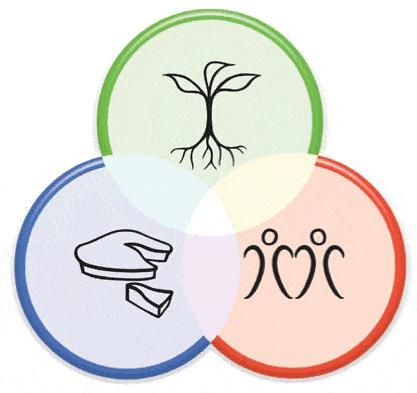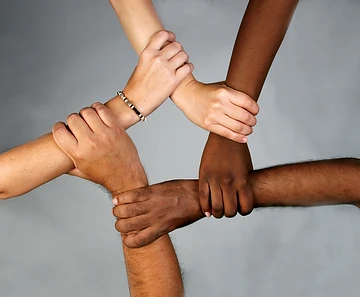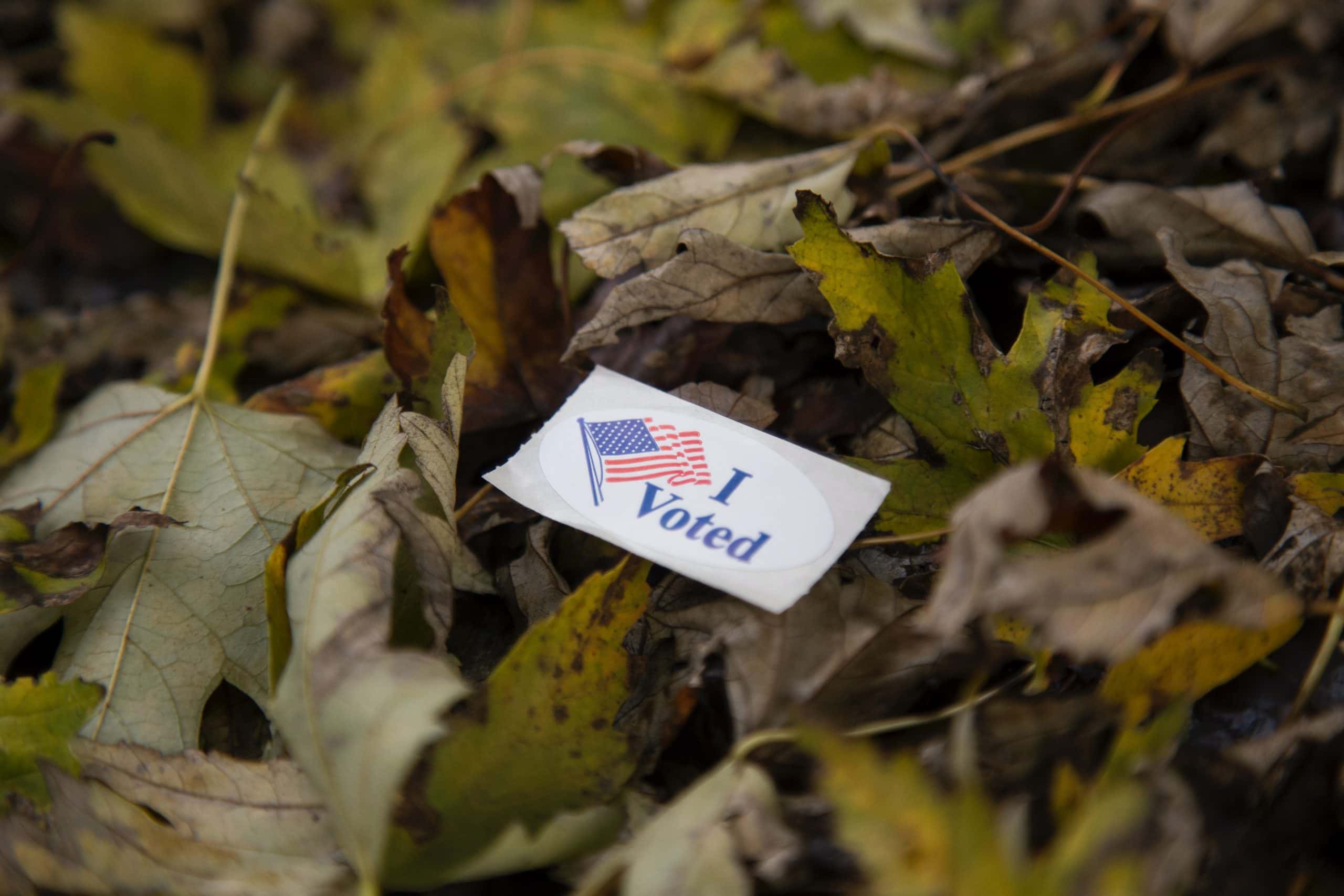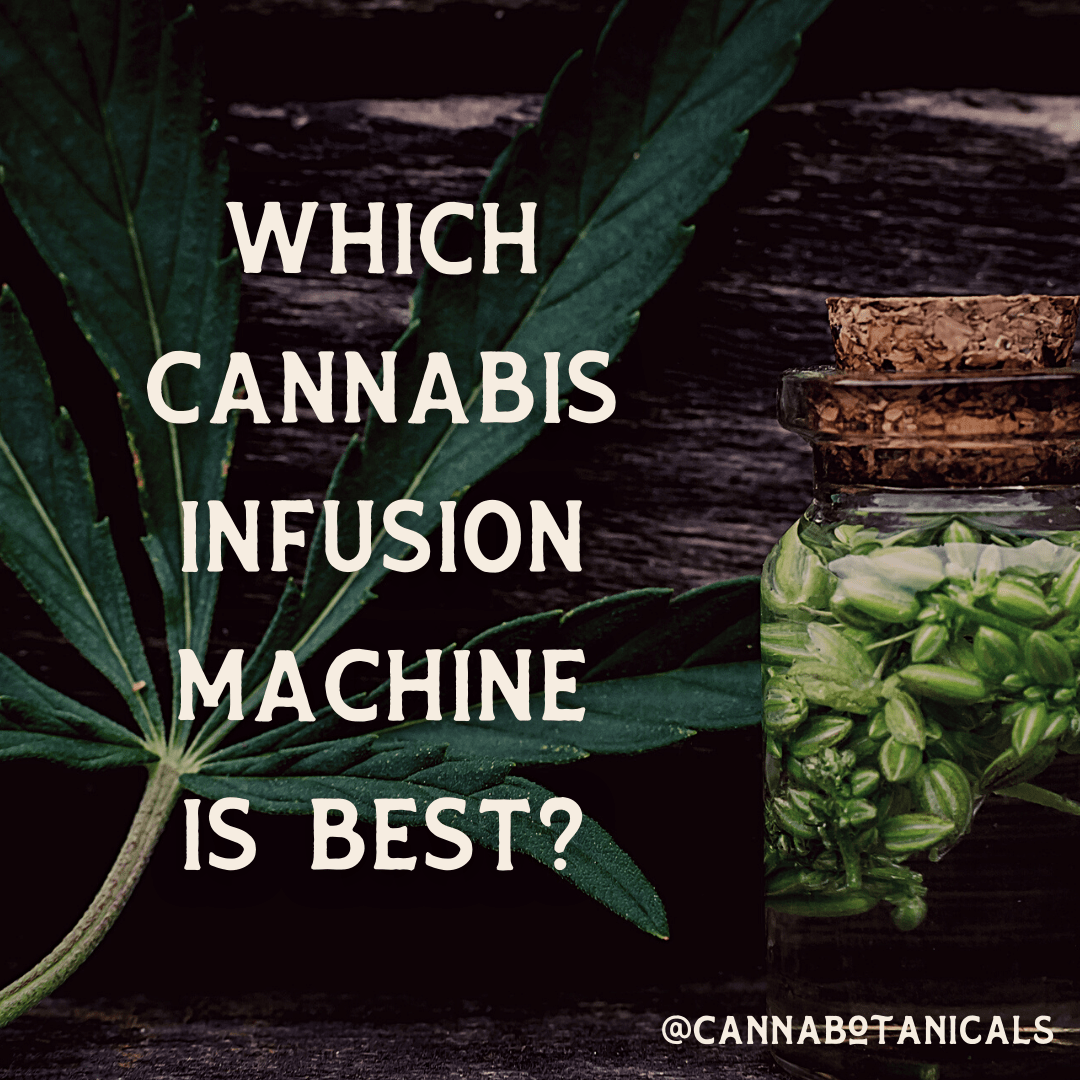Earth Care, People Care, Fair Share

With June comes the onset of summer officially, and these lot hot days full of the heady scent of flowers, fully leafed out tree canopies, and the ubiquitous sound of lawnmowers seem to agree. This time of year always gets me thinking about the sheer abundance that exists all around us, and how truly resilient nature really is. Despite all that humans are currently doing to the planet, the flowers still bloom, the dandelions push up through the asphalt, and the forest still yields us wild edibles and medicinals. It’s pretty amazing, and humbling. The end of June is also bringing us a pretty spectacular looking event that is in celebration and honor of the resiliency of nature, and is an exciting convergence of two of my passions — permaculture and cannabis. The Perma-Canna-Culture course at Willow Crossing Farm will be a week long residential exploration of how cannabis can be incorporated into a permaculture design, capped off by Heady Vermont’s Legalization Celebration on July 1st. This event has gotten me reflecting on the three ethics of permaculture and how they might relate to the cannabis industry — these are Earth Care, People Care, and Fair Share.
Earth Care
 This first principle states that any system we design should care for the soil and all living things, and support not only their ongoing existence, but their proliferation. Beyond mere sustainability, regenerative agriculture seeks to increase abundance and biodiversity rather that reduce it as conventional practices tend to do. With its reliance on indoor, climate controlled, artificially lit monoculture grow environments fed with processed and bottled nutrients (read: insanely resource intensive!), the cannabis industry has a ways to go on this one. Even outdoor grows in semi-arid California — relying on pumping thousands of gallons of water out of tired aquifers — are not going to possible for much longer. Instead, let’s get creative and think about how nature would grow this medicine, and how we can make our cultivation of cannabis a net positive for the ecology. Some ideas might include interplanting with other crops that help to ward off insects (like marigold, for example), maximizng the yield of our summer season so we don’t have to rely on added heat/light during the winter months, using the canopy of cannabis to grow other plants in its understory, chopping and dropping the leaves and stalks into the field to return nutrients to the soil (cannabis is a bioaccumulator, meaning that if we completely remove the plant after harvest we’re robbing valuable nutrients from the soil), making our own compost tea to fertilize with rather than buying nutrients, building up the soil in patterns that conserve water, seeking out warm microclimates in which to situate the plants, planting cover crops in the off season, etc. etc. etc. There are thankfully people out there who are working on this. In states where cannabis has been legalized for adult use, we are seeing farms and processors receiving “Clean Green Certification” which is certainly a step in the right direction. Since cannabis cannot legally get a USDA Organic sticker stuck on it, these folks have developed a very similar process for reassuring consumers that their medicine was not grown or processed with harmful chemicals. Which is awesome and totally necessary, but is arguably not enough. I was encouraged by reading a recent Leafly article entitled “‘Sustainability Is Not Enough’: Why Cannabis Growers Are Looking to Regenerative Farming,” which talked about how farmers in BC are working on a certification process they’re calling DEM Pure Certification. I’m in love with their checklist of requirements. This certification would ensure that not only are the agricultural practices being used regenerative, but also that the workers are treated fairly and that the final product is set at a fair price. Which brings me to the next ethic.
This first principle states that any system we design should care for the soil and all living things, and support not only their ongoing existence, but their proliferation. Beyond mere sustainability, regenerative agriculture seeks to increase abundance and biodiversity rather that reduce it as conventional practices tend to do. With its reliance on indoor, climate controlled, artificially lit monoculture grow environments fed with processed and bottled nutrients (read: insanely resource intensive!), the cannabis industry has a ways to go on this one. Even outdoor grows in semi-arid California — relying on pumping thousands of gallons of water out of tired aquifers — are not going to possible for much longer. Instead, let’s get creative and think about how nature would grow this medicine, and how we can make our cultivation of cannabis a net positive for the ecology. Some ideas might include interplanting with other crops that help to ward off insects (like marigold, for example), maximizng the yield of our summer season so we don’t have to rely on added heat/light during the winter months, using the canopy of cannabis to grow other plants in its understory, chopping and dropping the leaves and stalks into the field to return nutrients to the soil (cannabis is a bioaccumulator, meaning that if we completely remove the plant after harvest we’re robbing valuable nutrients from the soil), making our own compost tea to fertilize with rather than buying nutrients, building up the soil in patterns that conserve water, seeking out warm microclimates in which to situate the plants, planting cover crops in the off season, etc. etc. etc. There are thankfully people out there who are working on this. In states where cannabis has been legalized for adult use, we are seeing farms and processors receiving “Clean Green Certification” which is certainly a step in the right direction. Since cannabis cannot legally get a USDA Organic sticker stuck on it, these folks have developed a very similar process for reassuring consumers that their medicine was not grown or processed with harmful chemicals. Which is awesome and totally necessary, but is arguably not enough. I was encouraged by reading a recent Leafly article entitled “‘Sustainability Is Not Enough’: Why Cannabis Growers Are Looking to Regenerative Farming,” which talked about how farmers in BC are working on a certification process they’re calling DEM Pure Certification. I’m in love with their checklist of requirements. This certification would ensure that not only are the agricultural practices being used regenerative, but also that the workers are treated fairly and that the final product is set at a fair price. Which brings me to the next ethic.People Care

The cannabis industry has unfortunately not done much to undo this legacy. In many states, having a cannabis conviction in your past bars you from working in the industry, including in Vermont. Wait, what? Wouldn’t you want people with experience growing, processing, and selling cannabis to be on the ground floor of the legal market? Of course you would! So what in reality ends up happening is that only the people who have been privileged enough to get away with their black market activity are able to snag the jobs, while those who were targeted for enforcement are left in the cold. Thank goddess that some folks see the systemic racism and classism in this and have started flipping the script on this. In Massachusetts, for example, licenses are being given preferentially to minorities, folks from targeted communities, and people with past convictions. Similar programs have sprung up in Oakland and Washington DC. Time for Vermont to step up?
Of course, not everyone wants to work in the cannabis industry, and there is certainly other baggage associated with having a criminal record. So maybe the real solution is expungement. In California, under Prop 64 (the bill that legalized adult use) people can petition a court to have their past cannabis-related convictions be either expunged or downgraded. Since having a past conviction can hinder your ability to get a job, find housing, or get a loan, among other things, being able to erase this from your record is huge, and makes total sense given that the crime for which you were convicted has also been erased from the books. Some counties in Vermont are stepping up to this plate — in Chittenden and Windsor counties, “expungement days” have been scheduled in which volunteers from the State’s Attorney’s office and Vermont Law School will be assisting people in completing petitions to have their past convictions expunged from their record. This will take place in Chittenden county on June 12 and in Windsor County on June 9. Now, this is fantastic, but ridiculous that its not happening in every country around the state. I encourage each and every one of you to write to your State’s Attorney Office and demand that they host similar events in your area. Even if you don’t personally have a record, by doing so you are giving back to your neighbors who have helped pave the way for the very existence of a adult use bill in VT.
Fair Share

#permaculture #earthcare #peoplecare #fairshare #expungement #socialjustice #sustainability #regenerativeagriculture #biodiversity
Recent Posts
Join Our Mailing List!
Like what you see on our blog? Get on our mailing list to receive updates!



